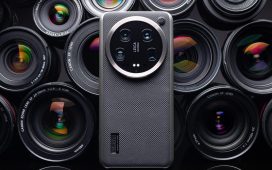![]()
So you’re about to shoot someone’s wedding. That’s amazing — it’s an incredible opportunity to be part of one of the most intimate and beautiful experiences in human love. But between photography and videography, which medium gets the job done?
I’m the co-owner of CineStory Films, a Los Angeles-based wedding video and photo service, and we specialize in both mediums. We have professionals who opt for video and others who choose photo to get the best results. Here are the pros and cons of both photography and videography.
Comfort and Experience
While it’s important to keep your clients in mind when making this decision, it’s best to first think about yourself and what you’re most comfortable with. You wouldn’t ask a professional painter to make a five-star meal, so why opt for video if you’re a natural-born photographer?
It goes without saying that both photographers and videographers have great artistic vision, but the two differ drastically with the use of motion (or lack thereof). With wedding photography, you’re more moving around and can often rely on couples and their loved ones to strike a pose.
With wedding videography, you might have to get a little creative with your angles and the way you get the shots you need. You need to record the vows at the altar, but you know you can’t just sit in the pews alongside the couple’s loved ones. Instead, you have to make do with angles and positions that won’t disturb the ceremony while making sure you have what you need.
Communication
Both photographers and videographers need to have an incredible sense of open communication with clients and their loved ones. Whether you’re a social butterfly or like to keep to yourself, your ease in conversing should also inform your pick between photo and video.
Given how many shots a photographer must take of not only a married couple but also their loved ones, they can definitely benefit from being more on the extroverted side. They’re always in the action, comfortable in organizing group shots, and commanding when it comes to getting the perfect shot.
Considering how much the photographer interacts with attendees and organizes them into group photos, it takes a lot of work to get them comfortable posing and rearranging them, sometimes multiple times.
The introverted type might thrive more as a videographer. Though wedding videos may differ in style, one of the common styles of wedding videography is documentary. Instead of asking attendees to show you having a good time, catch them doing so, smiles and all. Additionally, taking video can be more stationary, meaning it’s less noticeable for videographers to move around.
![]()
Style
Whether you’re part of a business or a freelance artist, style such an integral part in crafting a memorable story of a client’s wedding. It’s what makes an artist’s work unique and it’s what makes the whole project feel cohesive. However, the importance of maintaining style in wedding photography varies from photographer and videographer.
With wedding photography, there’s more leeway in style as the photographer will take different kinds of photos, from documentary-style of the ceremony to posed pictures at the wedding reception. It’s easier to have less of a rigid style when taking photos and to experiment with the shots you take.
Videographers, on the other hand, need to maintain a similar style throughout the process. When you watch a well-made movie, you don’t see solar flares in one shot then saturated colors the next. Apply this kind of mindset to your work as a wedding videographer. If you like smooth and consistent work, your customers will appreciate it tenfold.
![]()
Equipment, Editing and Post
While multiple basic principles of photography can easily lend themselves to videography, it’s worth noting how the two can vary drastically in equipment needed and the editing process.
When you’re a photographer, you might carry your go-to cameras, cleaners, flashes and a couple of lenses all neatly organized in your handy camera bag. Compared to a videographer, you’ll have less cargo, which also grants you ease in movement.
The lightness of being a photographer also carries over to the editing process. Some of the common software professional photographers use to edit their photos include Adobe Lightroom and Photoshop.
These programs, which often have cheaper (if not free) alternatives, are significantly more affordable than high-quality video-editing services. Additionally, photographers can have a much quicker turnaround than their videographer counterparts, given that it can easily take just a couple of minutes to spruce up a photo.
Often times, videographers can do more of the heavy lifting, literally. While it’s fine to use a single camera for all of the shots, there’s so much more equipment that can help augment your camera’s ability, including tripods, external lighting, and microphones. But if you’re looking to add more flair to your video style, expect to carry even more as you can add drones and other fancy gadgets to your list.
For videographers, video editing services that aren’t expensive and high quality are pretty rare to come by. Services like Final Cut and Premiere will cost a pretty penny but are sure to give you a better product than others.
Additionally, videographers have to do more work in that they’re finding their favorite clips, cutting them down, setting them to music, all while making sure the video itself is well-lit, beautifully colored and consistent in style. That said, the turn around can take days, if not weeks.
![]()
Marketing
One of the major things to consider in choosing between wedding photography and videography is marketing. How would you sell yourself and your services? How can you stand out from the rest?
For photographers, especially in a high population area like Los Angeles, it can be difficult to find a client as it’s incredibly competitive. Given how saturated the market can be, you have to be willing to put in a little more elbow grease to build your brand.
A few ways to do this is to keep a portfolio of your best work, build relationships with your clients (who can tag you and refer you to friends), brag about your accomplishments and use the internet to its fullest. Social media platforms are a sure way to get someone’s attention, but just remember it’s still incredibly difficult.
Videographers, on the other hand, face less competition which immediately makes it easier to get business. Additionally, you can showcase your work on even more accessible websites including Vimeo and YouTube. But even then, it’s worth adding the aforementioned tips to your marketing strategy.
![]()
The Bottom Line
I hope that these explanations clarified the differences between wedding photography and videography. That said, it’s always best to start out with what you’re most comfortable with. From there, build your network, make clients fans of your work and advertise yourself.
It’s going to be tough, sure. But remember that you’ll need to build certain skills before getting more work. And always remember, the end product is just a sliver of the amount of hard work behind it.
About the author: Dan Kumieko is a passionate wedding photographer, filmmaker, and the co-owner of CineStory Films. You can find more of his work on the CineStory website.
Image credits: Photos and videos by CineStory and used with permission. Video camera icon in header illustration by Рытикова Людмила and licensed under CC BY-SA 4.0.










